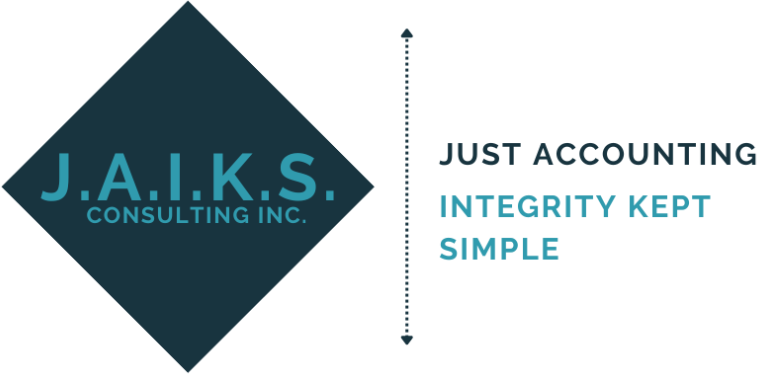J.A.I.K.S. BLOG
Welcome to J.A.I.K.S. Blog, a place where we will provide you with a variety of resources on accounting, taxation and other related subjects suited for both individuals and/or their businesses.
We hope you can find the answers to your questions and/or curiosities, and always know we are here to help if you need more.
Follow us on Facebook or find us on LinkedIn - we are always eager to give you more!
Disclaimer:
The content provided in this blog is for general informational purposes only and is not intended as professional accounting, tax, or financial advice. While efforts are made to ensure the accuracy and timeliness of the content, errors or omissions may occur. The content does not constitute a client-advisor relationship. Readers should consult with a Chartered Professional Accountants or other financial professional for advice tailored to their specific needs. We are not liable for any actions one might take based on the information provided in this blog.
It’s tax time again. If you are like others, you may feel overwhelmed by the process. Sadly, scammers are aware of this and take advantage of people's fears by trying to steal money and gain unauthorized access to personal data and financial details. The Canada Revenue Agency has seen a dramatic increase in the sophistication of scam attempts, so it is essential that you learn the difference between legitimate communication and a scam from the CRA. The best way to protect yourself from potential fraud is by learning the signs.
Numbers from the Canadian Anti-Fraud Centre show that direct calls remain the number one means of solicitation for fraudsters.
Although the CRA may contact you via phone to review your income tax and benefit return, it's important to note that legitimate government employees will always identify themselves with their name, employee number, and phone number.
The Canada Revenue Agency (CRA) might email you:
- to let you know that a new message is available on your CRA website account.
- to send you a link for a webpage, form, or publication that you requested during a call or meeting with a CRA representative.
- to let you know about tax credits and benefits for individuals or online services such as My account.
The CRA will not send text messages, or instant messages (Facebook Messenger, WhatsApp) to start a conversation with you under any circumstances.
If you receive a text or instant message purporting to be from the CRA, prompting you to click on a link or requesting information, you can safely delete it.
Avoiding online scams in Canada (or anywhere else) involves being vigilant, informed, and taking proactive measures to protect your personal and financial information. Here are some tips to help you avoid online scams:
During the holiday season, scammers often take advantage of the festive atmosphere and people's increased online activities. Christmas scams can take various forms, but some common tactics include:






